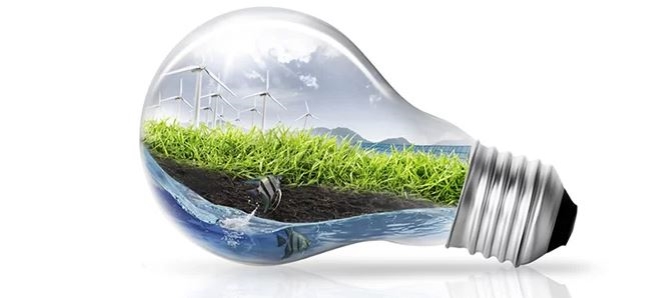Courtesy : Eletropages
Green technology
There’s an overall trend towards environmentalism across all sectors. Whether this means restaurants banning plastic straws, a transition to clean energy sources, or purchasing carbon offsets, society as a whole has witnessed an uptick in sustainability. Recently, green technology has become increasingly popular. Learn all about what green technology is and why it’s important.
What are examples of green technology?
As the “green” in its name implies, green technology features an onus on sustainability. And the technology portion, well, that’s pretty wide-ranging. Overall, green energy concentrates on sustainable innovation which factors in short-term and long-term environmental effects.
1. LED Lighting
A simple example of green tech is LED lighting. By avoiding incandescent lights, there’s a substantial gain on efficiency. LED light bulbs use less energy than traditional incandescents. Plus, LED lights prove vital outside pure visual aids. Instead, they’ve been implemented in vertical farming and have even combated malaria. Smart LEDs are a simple smart home upgrade that even apartment dwellers may adopt.

Credit: Solar Electric Power Company
2. Solar Panels
While solar panels aren’t exactly new, lower prices coupled with monetary incentives such as tax credits in many areas have made solar panels a solid solution. Even a single solar water heater drastically reduces energy use. Since solar energy is so efficient, there’s a pretty quick turnaround for recouping any losses.
3. Wind Energy
Likewise, harnessing wind power is a fantastic example of green tech in action. Commonly, wind energy is associated with a wind farm. But small-scale windmills offer a nifty method of adopting such green tech in a residential setting. The amount of energy you can offest with a windmill varies quite, as does the cost of adoption and installation. Offshore wind turbines provide steady, reliable clean energy.
4. Composting
Among the best and easiest green tech examples, there’s composting. It’s incredibly simple and virtually anyone can get started. You can make your own worm bin perfect for use in a home, and many cities even tout composting programs. I make use of a paid service that picks up my food waste. In some areas, such as Seattle, it’s illegal to dispose of food waste in the trash bin.
5. Electric Vehicles
Although the price tag of a Tesla may be a bit steep, the flagship electronic vehicle manufacturer isn’t the only EV maker on the market. Instead, there’s a slew of other electric automobiles from the likes of Nissan, Chevy, and BMW. Advances in EV technology find wireless charging capabilities as the electric auto industry continues to evolve. Granted, charging an electric vehicle off of a coal-powered grid isn’t as sustainable as it could be, but better gas mileage and zero emissions still makes it a better alternative than a petroleum-powered car. EV may be the future of the automotive industry.
6. Programmable Thermostats
A programmable thermostat is a low-cost green technology solution. Virtually any home or apartment now boasts one. With a programmable thermostat, you can set a schedule and automatically adjust the temperature around your comings and goings to save not only energy but also money. Moreover, programmable thermostats don’t even need to be smart thermostats. Rather, tons of “dumb” thermostats feature the ability to set a schedule. A smart thermostat does add the convenience of being able to monitor and change temperature remotely.
7. Vertical Farming
Vertical farming is an eco friendly technology as simple as its name. This is the concept of growing produce in stacked vertical layers rather than horizontally. The benefits of vertical farming are increased sustainability. Some vertical farming configurations don’t even require soil, and reduce water use exponentially.
It’s Not Easy Being Green Technology
Green tech varies from accessible devices such as programmable thermostats and LED bulbs, to pricey wind turbines and solar panels, with electronic vehicles somewhere in between. No-cost solutions like composting are excellent starting places. However, there are tons of considerations such as how renewable energy is being stored. Combating climate change requires a total disruption of society, including the continued adoption of green technology.
